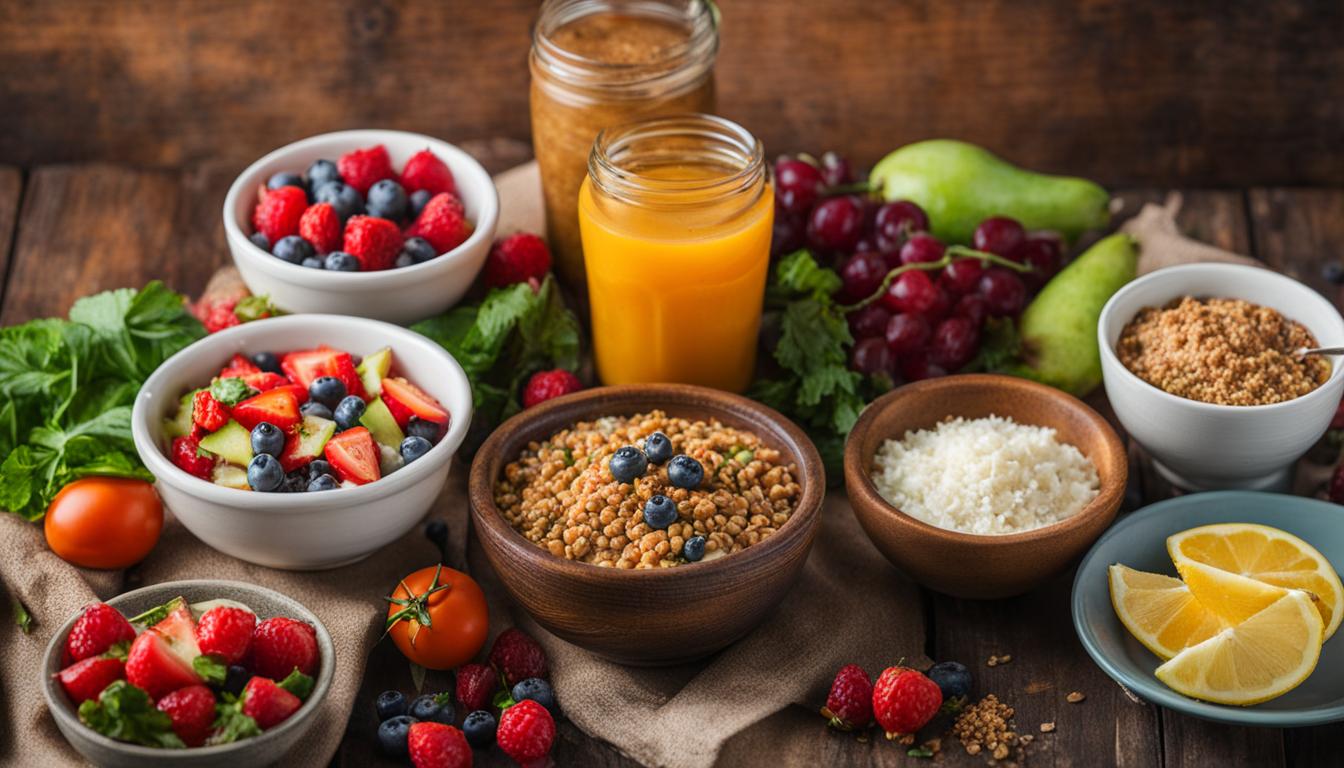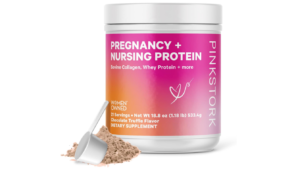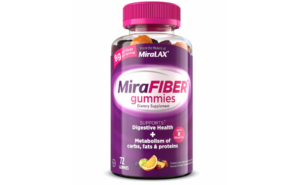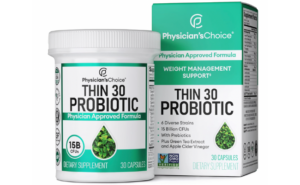Welcome to our comprehensive guide to an effective and simple 30-day weight loss plan! If you’re looking to lose weight, a 30-day diet plan for weight loss can be an excellent starting point. Our meal plan for weight loss is designed to help you achieve your weight loss goals in just 30 days. By following our 30-day plan, you can create a calorie deficit, which is essential for fat loss. Are you ready to embark on this exciting journey to achieve the ideal body weight? Then, let’s dive in!
Our 30-day diet plan for weight loss is a carefully designed program that includes a variety of nutrient-dense foods, easy-to-follow recipes, and simple yet effective lifestyle changes. Our plan can help you achieve your weight loss goals while maintaining a healthy relationship with food. Whether you’re looking for a whole food-based diet or a keto-based plan, our 30-day meal plan can help you achieve your weight loss goals. So, get ready to lose weight and feel your best in just 30 days with our 30-day plan to lose weight!
Table of Contents
Why Choose a 30 Day Weight Loss Food Plan?
Starting a weight loss journey can be challenging, especially if you don’t have a plan in place. That’s where a 30 day weight loss food plan comes in handy. By following a well-designed plan, created with the help of a dietitian, you can achieve better health and kickstart your weight loss goals. Let’s dive into the details of why this plan is so effective.
A weight loss diet plan is essential for creating a calorie deficit, which is necessary for weight loss. By reducing your calorie intake, you force your body to burn stored fat for energy, resulting in fat loss. However, it’s important to create a diet meal plan that suits your needs, as a plan that’s too restrictive can be difficult to maintain in the long term.
Day one of your 30 day weight loss food plan will be the start of a journey that can transform your health and wellness. By following the plan, you will learn to make better food choices that support your weight loss goals and improve your overall wellbeing.
A typical weight loss diet plan, like the one we provide, will put you in a calorie deficit of around 500-1000 calories per day. This calorie deficit aids in rapid weight loss and fat loss, leading to a healthier body composition. By day five of your 30 day weight loss food plan, you may already start to see the effects of the calorie deficit.
A 30 day weight loss food plan, especially one designed with the help of a dietitian, can provide numerous benefits beyond just weight loss. By improving your food choices and reducing your calorie intake, you can experience increased energy levels, better sleep, and improved overall health. So why not give it a try?
“A weight loss diet plan is essential for creating a calorie deficit, which is necessary for weight loss. By reducing your calorie intake, you force your body to burn stored fat for energy, resulting in fat loss.”
Understanding the Whole30 Program
If you’re looking for an effective 30-day weight loss food plan, the Whole30 program is an excellent option worth considering. This diet program focuses on eliminating certain foods and ingredients from your diet to improve your health and create sustainable weight loss. Here’s what you need to know about the Whole30 program:
What is the Whole30 Program?
The Whole30 program is a 30-day elimination diet that involves cutting out certain food groups, such as dairy, grains, legumes, and processed foods. By following this diet, you can identify which foods may be causing inflammation or other health issues in your body. The program was created by Dallas and Melissa Hartwig and has gained popularity over the years due to its effectiveness.
Sample Menu
A sample menu for the Whole30 program may include:
| Meal | Food |
|---|---|
| Breakfast | 3 egg omelette with spinach, mushrooms, and avocado |
| Lunch | Grilled chicken breast with roasted sweet potato and green beans |
| Dinner | Beef stir-fry with broccoli and carrots cooked in coconut oil |
| Snack | Apple slices with almond butter |
How Can Whole30 Help You Achieve Your Weight Loss Goals?
By following the Whole30 program, you can learn to make healthier food choices and develop better eating habits. The program promotes the consumption of whole foods, such as meat, seafood, eggs, vegetables, and fruit, while eliminating processed foods and added sugars. Additionally, the Whole30 program encourages you to cook at home and experiment with new recipes, which can help you develop a better relationship with food and improve your overall health and wellness.
Greek Yogurt and Low-Fat Dairy
While the Whole30 program encourages the consumption of whole foods, it eliminates dairy products, including Greek yogurt and low-fat dairy. While dairy products can be a good source of nutrients, some people may be sensitive or intolerant to lactose or casein, which are found in dairy products. By eliminating dairy from your diet, you can determine if it’s causing any health issues or inflammation in your body.
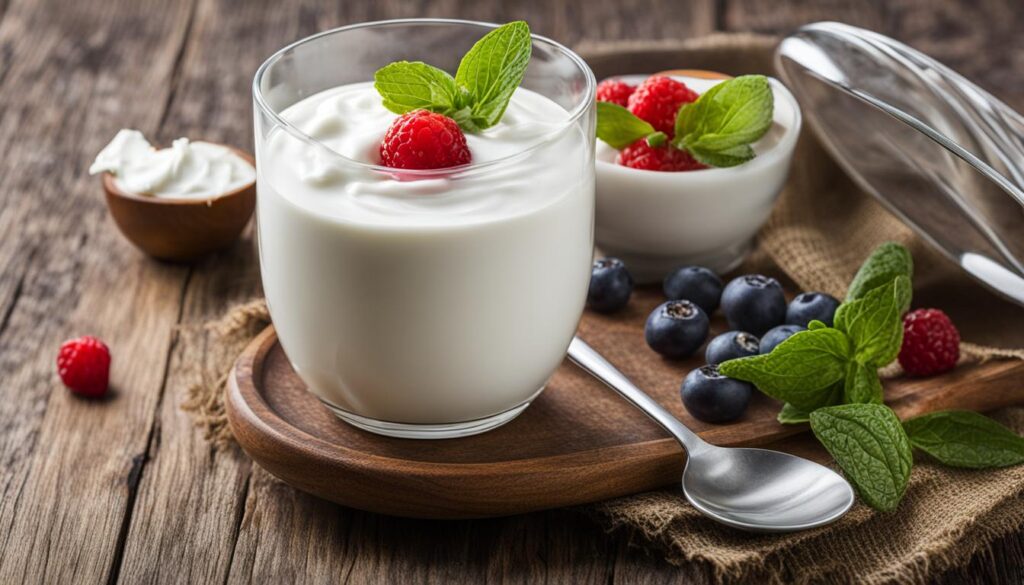
Whole Foods and Eating Habits
The Whole30 program promotes the consumption of whole, nutrient-rich foods, such as fruits, vegetables, and healthy fats. By eliminating processed foods and added sugars, you can retrain your taste buds to appreciate the flavors of natural foods. Additionally, the program encourages you to develop better eating habits, such as cooking at home and eating mindfully, which can lead to sustained weight loss and improved overall health.
The Benefits of a 30 Day Meal Plan
Starting a weight loss plan can be daunting, but following a 30-day meal plan can make a world of difference. Not only does a structured plan help you lose weight, but it can also provide a number of other benefits to support your overall health and wellbeing. Let’s take a closer look at how a 30-day meal plan can help you achieve your weight loss goals and improve your quality of life.
Help You Lose Weight
The most obvious benefit of a 30-day meal plan is that it can help you lose weight. By following a well-balanced diet plan that includes nutrient-rich whole foods and limits processed and high-fat foods, you can create a calorie deficit that promotes fat loss and rapid weight loss. In fact, studies have shown that people who follow a structured meal plan lose more weight than those who don’t have a plan in place.
Support Your Weight Loss Goal
A 30-day meal plan can be customized to meet your specific weight loss goals. Whether you need to lose a few pounds or a significant amount of weight, a meal plan can help you achieve the results you’re looking for. By adjusting your calorie intake, macronutrient ratios, and food choices, you can create a plan that suits your individual needs and supports your weight loss goal.
Whole30 Program
The Whole30 program is one of the most popular 30-day diet plans for weight loss. It focuses on eliminating certain foods and ingredients from your diet to improve your health and create sustainable weight loss. The program emphasizes whole foods, such as fruits, vegetables, lean proteins, and healthy fats, while eliminating legumes, dairy, and grains.
A 30-day meal plan that follows the principles of the Whole30 program can be an effective way to kickstart your weight loss journey and improve your eating habits.
Provide Nutrient-Dense Foods
Following a 30-day meal plan can also ensure that you’re eating nutrient-dense foods that provide essential vitamins, minerals, and antioxidants to support your overall health. By focusing on whole foods and limiting processed and high-fat foods, you can provide your body with the nutrients it needs to function at its best.
Increase Energy Levels
Many people experience increased energy levels when following a 30-day meal plan. By eating a balanced diet that includes a variety of nutrient-dense foods, your body can function at its best, providing you with the energy you need to tackle your day-to-day tasks.
Improve Your Relationship with Food
A 30-day meal plan can also help improve your relationship with food. By eliminating processed and high-fat foods and focusing on whole foods, you can develop a better understanding of how food affects your body. Plus, since meal planning requires you to be more mindful of your food choices, it can also encourage you to develop better eating habits overall.
“A 30-day meal plan can make a world of difference in achieving your weight loss goals and improving your overall health and wellbeing.”
Creating Your Personalized 30 Day Weight Loss Food Plan
Embarking on a 30-day weight loss program is an excellent way to kickstart your weight loss journey and achieve your weight loss goals. The first step towards losing weight is to create a personalized meal plan that suits your preferences, current weight, and daily caloric intake.
If you’re looking to lose weight, you need to be in a calorie deficit, meaning you need to burn more calories than you consume. Cut out high-calorie, processed foods that have little nutritional value and replace them with nutrient-dense, whole foods.
There are several popular 30-day weight loss programs available, such as the Whole30 program, a 30-day elimination diet that helps with weight management, and the keto diet, a high-fat diet designed to help you lose weight rapidly.
Before starting any weight loss program, it’s important to consult with your doctor or registered dietitian to ensure it’s safe and right for you.
Calculating Your Daily Caloric Intake
Calculating your daily caloric intake is essential to create a personalized meal plan that’s right for you. There are several online calculators that can help you to determine your daily caloric needs based on factors like your age, weight, height, and activity level.
Once you know your daily caloric needs, you can decide how many calories you need to cut to achieve your weight loss goal. A safe and reasonable weight loss goal is around 1-2 pounds per week.
Creating Your Meal Plan
The best way to create a successful 30-day meal plan is to plan your meals in advance. Take the time to sit down and create a detailed plan for all your meals and snacks for the week.
It’s important to include a variety of foods from different food groups, such as fruits, vegetables, whole grains, lean proteins, and healthy fats. Avoid processed and high-sugar foods that spike blood sugar levels and cause inflammation.
If you’re following the Whole30 program, there are several Whole30-approved ingredients and recipes you can explore.
| Meal | Food | Calories |
|---|---|---|
| Breakfast | Two scrambled eggs with spinach and mushrooms + 1 slice whole wheat toast | 350 |
| Lunch | Turkey wrap with whole wheat tortilla, avocado, tomato, and lettuce | 400 |
| Dinner | Grilled chicken with roasted sweet potatoes and broccoli | 450 |
| Snack | Apple with almond butter | 200 |
A meal plan can help you achieve your weight loss goals by keeping you on track and avoiding impulsive food choices. Be sure to stick to your plan, but it’s also essential to listen to your body and adjust your plan accordingly.
Remember, achieving your weight loss goals requires patience, dedication, and consistency. By creating a personalized 30-day weight loss food plan, you’re taking the first step towards achieving a healthier, happier you.
Building a Nutrient-Rich Meal Plan
To achieve effective weight loss, it’s important to focus on nutrient-rich foods that provide essential vitamins, minerals, and antioxidants while keeping you satisfied and energized throughout the day. Here are some expert tips on building a meal plan that promotes weight loss, improves your relationship with food, and supports your overall wellbeing:
- Make Whole Grains a Priority: Whole grains, such as quinoa, brown rice, and oats, are excellent sources of fiber, which helps you feel full and satisfied after meals. They also provide a steady source of energy throughout the day and can help regulate blood sugar levels.
- Incorporate Healthy Fats: Healthy fats, like those found in avocados, nuts, and olive oil, are important for maintaining good health and can help you lose weight faster. They’re also essential for optimal brain function and can help reduce inflammation in the body.
- Focus on Nutrient-Dense Foods: Nutrient-dense foods, such as leafy greens, berries, and lean proteins, provide a high amount of nutrients for every calorie consumed. This can help you achieve your nutrient needs while keeping calorie intake low.
- Balance Macronutrients at Every Meal: A well-balanced meal plan should include a mix of complex carbohydrates, lean proteins, and healthy fats. This can help you feel satisfied after every meal and promote sustainable weight loss.
When following this diet, it’s important to consult with a registered dietitian or certified sports nutritionist to ensure you’re meeting your nutrient needs, particularly if you’re aiming to lose a significant amount of weight, such as a kilo per week. These professionals can also help you understand how to maintain a healthy calorie intake and avoid the temptation to eat less than you should.
Remember, every meal is an opportunity to fuel your body with nutrient-rich foods that promote optimal health and wellness. By following a diet that promotes whole, unprocessed foods, you can build a healthier relationship with food and enjoy the emotional benefits that come with it.
Exploring Whole30-Approved Ingredients and Recipes
When it comes to choosing the right foods for your health and wellness, there are many factors to consider. The Whole30 program offers a diet that’s restrictive in nature but can help you achieve your weight loss goals. By eliminating certain foods that may cause inflammation, this diet promotes the consumption of nutrient-dense foods like fresh veggies, whole grains, and healthy fats.
To follow the Whole30 program, all you need to do is follow a few simple guidelines. Avoiding certain foods like legumes, dairy, and grains may seem challenging at first, but there are many Whole30-approved ingredients and recipes available that can make following this diet much easier.
One of the best ways to ensure you’re making smart food choices is to consult a registered dietitian or ISSA certified sports nutritionist. These experts can help you understand the nutritional benefits of various foods and guide you towards nutrient-rich options that support your health goals.
“Nutrient-dense foods provide essential vitamins, minerals, and antioxidants while keeping you satisfied and energized throughout the day.”
When it comes to food choices, biotechnology has made it easier than ever to find delicious and healthy options. From Whole30-approved snacks to creative ways to use Whole30-approved ingredients, there are many resources available to help you stay on track.
To give you an idea of what a Whole30-approved meal might look like, here’s a sample menu for Day 1:
| Meal | Ingredients | Calories |
|---|---|---|
| Breakfast | Scrambled eggs with kale, mushrooms, and 1 cup of fresh berries | 315 |
| Lunch | Tuna salad with mixed greens, avocado, and cucumber | 380 |
| Dinner | Grilled chicken breast with roasted sweet potatoes and green beans | 470 |
| Snack | Carrot sticks with almond butter | 135 |
As you can see, a Whole30-approved meal plan can be both nutritious and satisfying. Whether you’re following the program for rapid weight loss or to improve your overall health, incorporating nutrient-rich foods like these can help you achieve your goals.
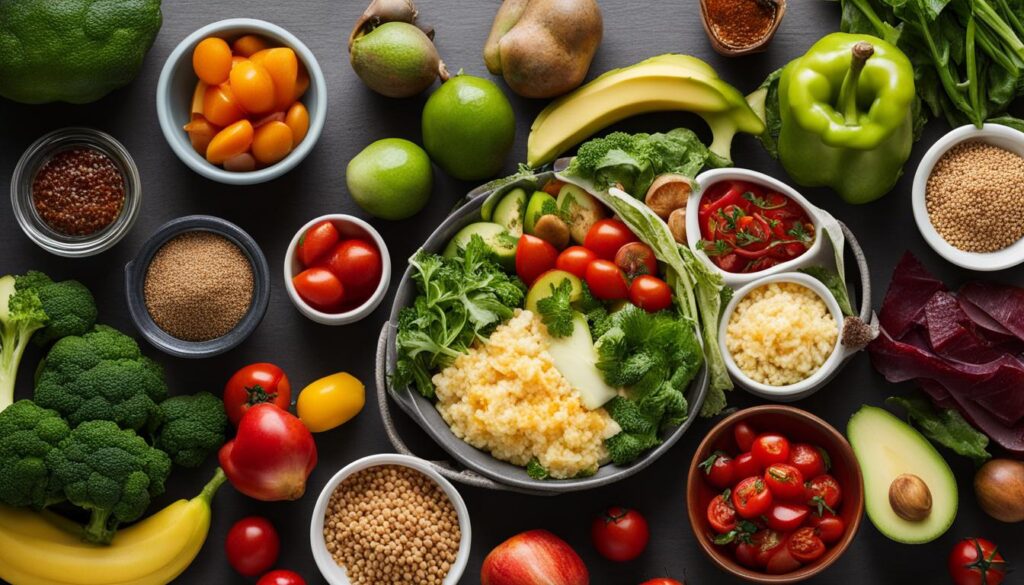
Sustaining Your Weight Loss Journey
After completing a 30 day weight loss food plan, the key to maintaining your weight loss success is to continue making healthy choices. Here are some strategies to help you sustain your progress:
Following the Whole30
If you completed a Whole30 program for your 30 day weight loss plan, you may find that continuing to follow the program can help you maintain your results. This diet focuses on whole, nutrient-rich foods while avoiding certain foods that can cause inflammation in the body. By sticking to this diet, you can continue to reap the benefits of improved energy levels, better sleep, and overall health.
Incorporating Low-Carb Meals
Low-carb meals can be an effective way to maintain your weight loss and keep your body in a state of fat-burning. By reducing your intake of carbohydrates and increasing your intake of protein and healthy fats, you can continue to get the desired results.
Building Muscle
Strength training is an important component of any weight loss plan. By building muscle, you can boost your metabolism and burn more calories while at rest. Incorporating strength training at least twice a week can help you achieve this goal.
Working with Certified Sports Nutritionists
If you need help understanding how to sustain your weight loss, consider working with a certified sports nutritionist. These professionals can help you develop a plan that meets your specific needs and goals, while ensuring you are getting the nutrients found in nutrient-rich foods like fruits, vegetables, and whole grains.
Avoiding Certain Foods
To maintain your weight loss, it’s important to avoid foods that can lead to weight gain. This includes processed foods, sugary drinks, and high-fat snacks. Instead, focus on nutrient-rich foods like fresh veggies, lean proteins, and healthy fats.
By following these strategies, you can sustain the progress you made during your 30-day weight loss plan and continue on your journey towards better overall health.
Conclusion
Starting a 30 day weight loss food plan can be a great way to kickstart your weight loss journey and improve your overall wellbeing. By following a plan that focuses on whole30-approved ingredients, you’ll be able to sustainably lose weight while enjoying nutritious and delicious meals.
Remember to aim for a daily caloric intake of around 1800 calories and to balance your macronutrient intake. Avoid foods that can cause inflammation and instead fill your plate with fresh veggies and nutrient-rich foods.
Don’t forget to check the editorial policy of the program you choose to ensure it aligns with your personal values and goals. Also, consider the emotional benefits of following a structured plan like the Whole30 program.
Sticking with It
After completing your 30 day weight loss food plan, it’s important to sustain the healthy habits you’ve developed. This means continuing to incorporate whole30-approved snacks and ingredients into your diet, avoiding certain foods that don’t align with your goals, and staying active to build muscle and improve your overall health.
Remember to consult with a registered dietitian or certified sports nutritionist for personalized advice tailored to your specific needs. With dedication and perseverance, you can continue to make progress towards your weight loss and wellness goals.
On a Final Note
We hope this guide has provided you with all the information you need to embark on a successful 30 day weight loss food plan. By following a structured program and incorporating whole30-approved ingredients into your meals, you can achieve your weight loss goals and improve your overall health and wellbeing.
Don’t be afraid to experiment with new and exciting recipes, like using a cauliflower crust for your pizza or finding creative ways to incorporate fresh veggies into every meal. With the right mindset and tools, you can sustainably achieve your weight loss goals and live your best life.
FAQ
What is a 30 day weight loss food plan?
A 30 day weight loss food plan is a structured program designed to help you lose weight and improve your overall health by providing a specific meal plan for a period of 30 days.
How can a 30 day weight loss food plan help me?
Following a 30 day weight loss food plan can help you kickstart your weight loss goals, improve your eating habits, and achieve better overall health.
What is the Whole30 program?
The Whole30 program is a popular 30 day diet plan for weight loss that focuses on eliminating certain foods and ingredients from your diet to improve your health and create sustainable weight loss.
What are the benefits of following a 30 day meal plan?
Following a 30 day meal plan can provide benefits such as increased energy levels, better sleep, improved digestion, and reduced inflammation.
How can I create a personalized 30 day weight loss food plan?
To create a personalized 30 day weight loss food plan, you should consider factors such as your current weight, desired calorie intake, and dietary preferences.
What should a nutrient-rich meal plan include?
A nutrient-rich meal plan should include foods that provide essential vitamins, minerals, and antioxidants while keeping you satisfied and energized throughout the day.
What are Whole30-approved ingredients and recipes?
Whole30-approved ingredients and recipes are those that align with the principles of the Whole30 program, eliminating certain foods and ingredients from your diet.
How can I sustain my weight loss after completing a 30 day weight loss food plan?
To sustain your weight loss, you can incorporate regular physical activity, make long-term dietary choices that support your overall health, and seek guidance from professionals such as registered dietitians or certified sports nutritionists.
What should I do after completing a 30 day weight loss food plan?
Congratulations on completing your 30 day weight loss food plan! To maintain your progress, continue practicing healthy habits, seek professional guidance, and listen to your body’s needs.
